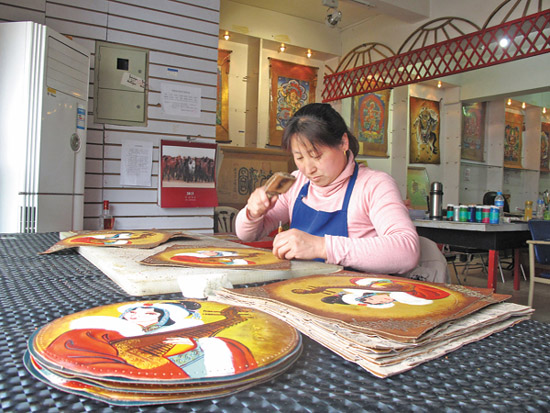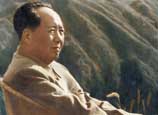
 |
| A worker is punching holes on the edge of the paintings. (China Daily/Wang Kaihao) |
"The general public considers paintings on paper as fine arts, and treats our painters as folk artisans," he says, adding that he felt unfairly treated. "Cowhide was the paper during ancient times for people living on the grasslands."
Yun expresses his regrets for not bidding leather painting skill as an intangible cultural heritage item earlier but has applied recently to the local government, while he opines that it is also important to make sure the paintings leave the shelves of the studios.
"It is not right that only a few people are dedicated to preserving traditional culture behind closed doors," he says. "We must let the public know what we are protecting."
While selling leather paintings in Inner Mongolia, Yun confesses many people doubted the purity of the art, especially when he introduced modern machines and used metallic molds to produce decoration paintings. His sales volume has reached 10 million yuan a year, with 80 percent coming from his assembly lines in another 4,000-square-meter workshop.
Despite the challenges, Dong is pleased that more people have understood the value of the work and are willing to pay tens of thousands of yuan to buy a fine leather picture, while a small decoration painting produced by machine is sold at 100 to 200 yuan.
Yun adds preserving traditional arts and commercialization can coexist without contradiction.
"Traditions will easily disappear if they are not useful to modern people. Leather paintings originated from the daily life of ancient times, and they should continue to be in the lives of people again."




















![]()
